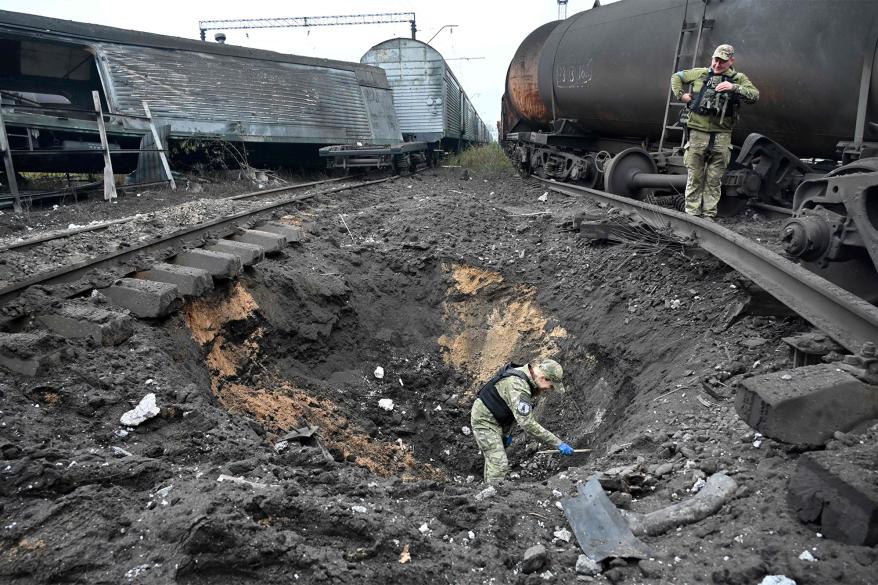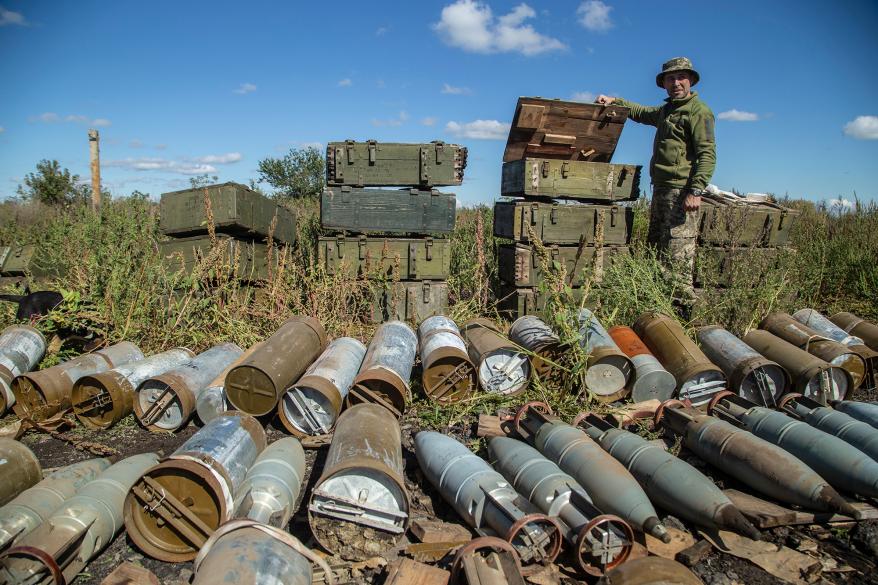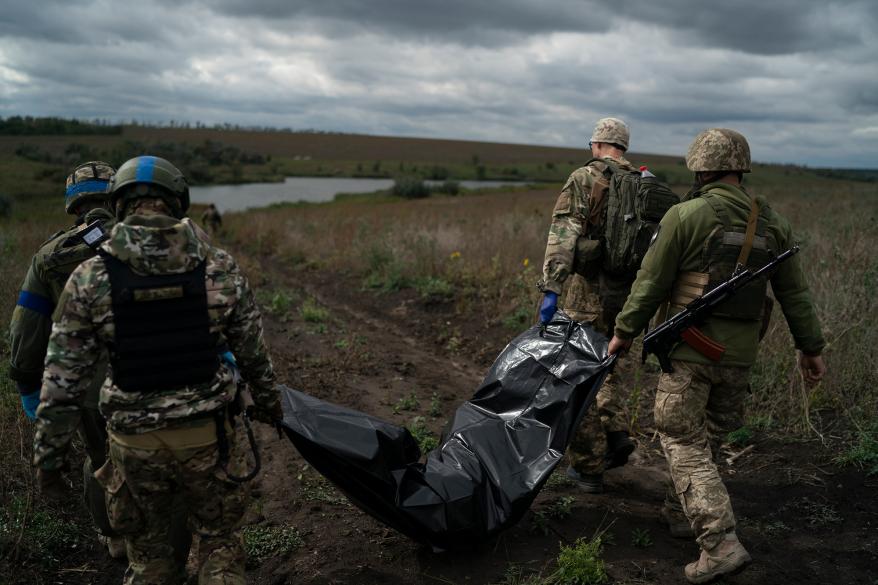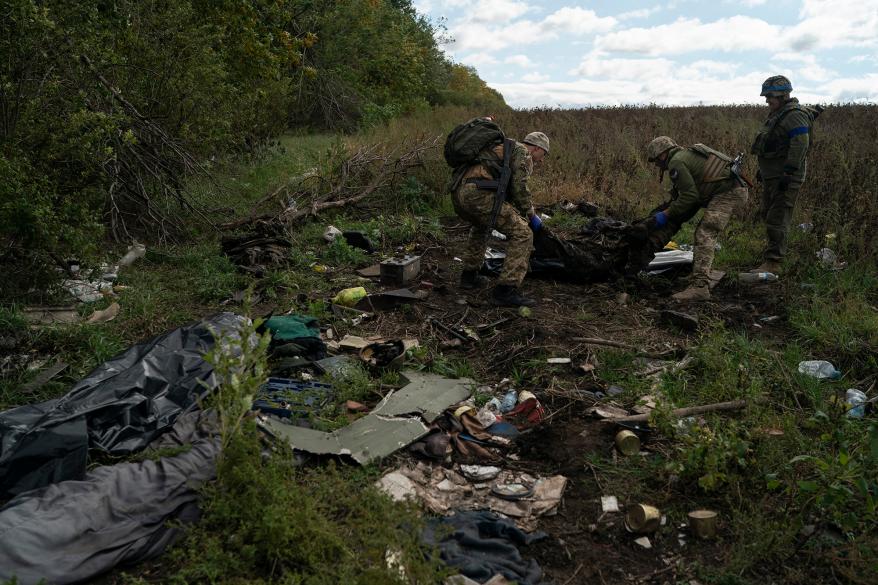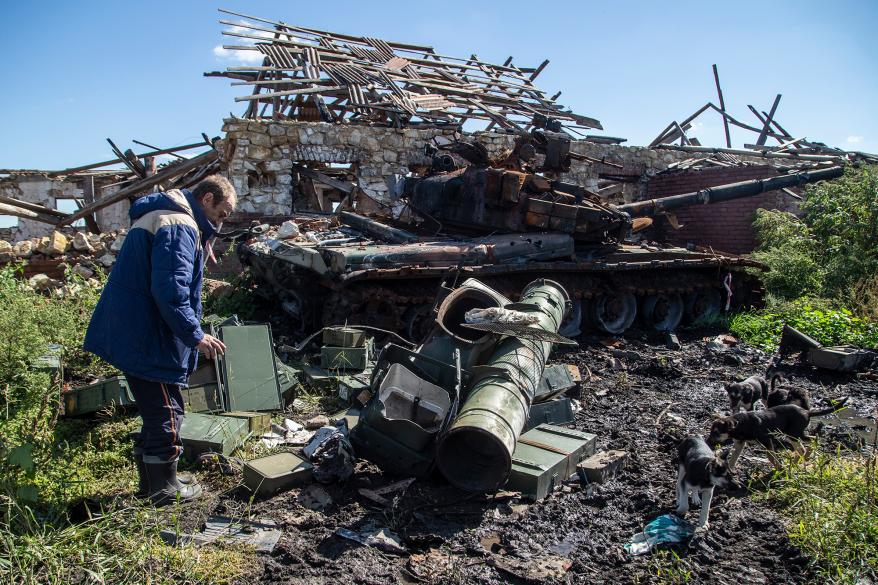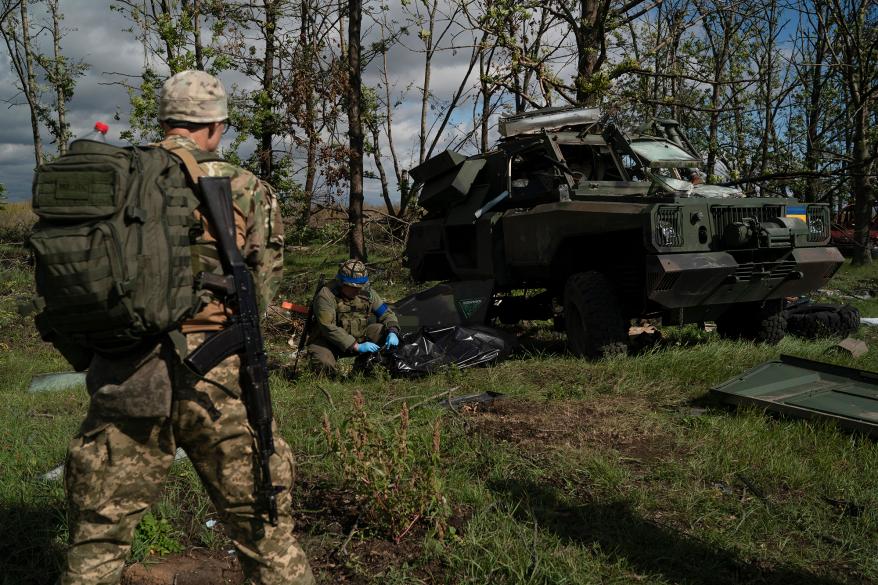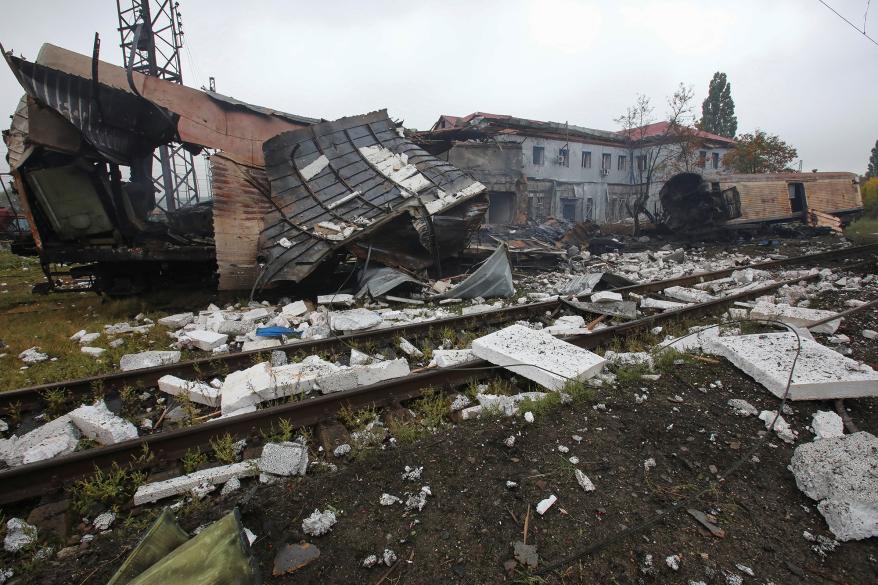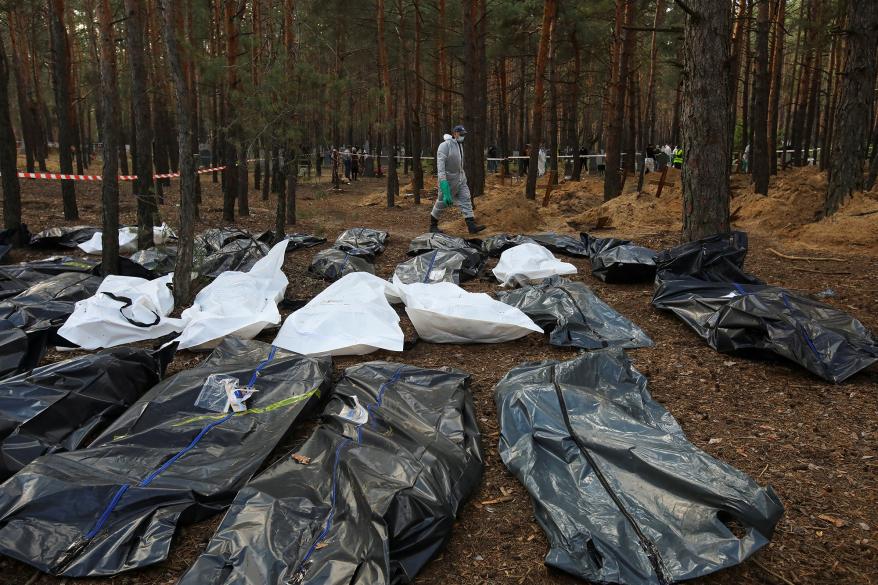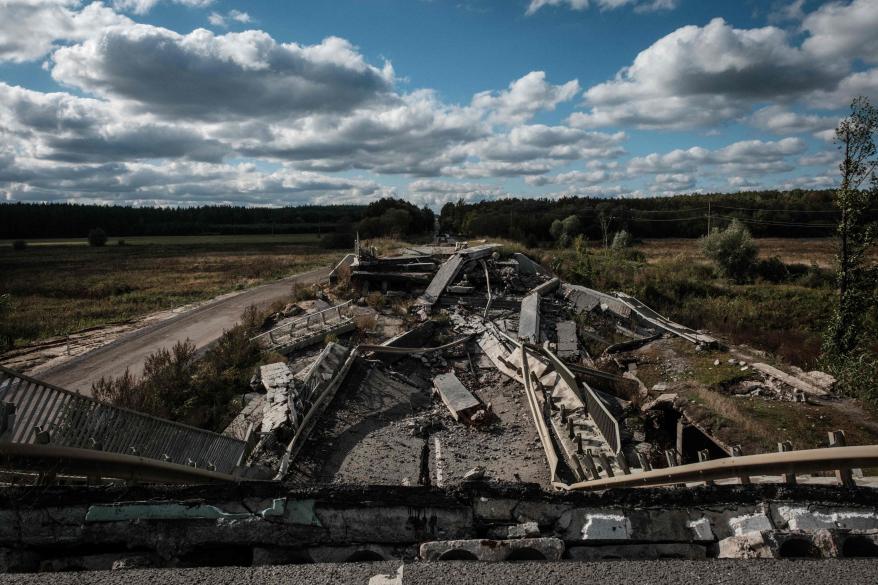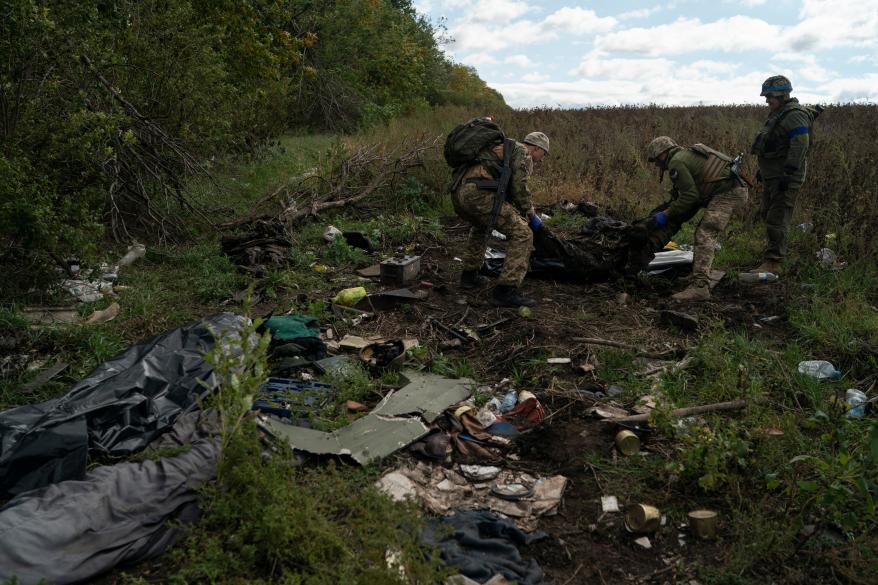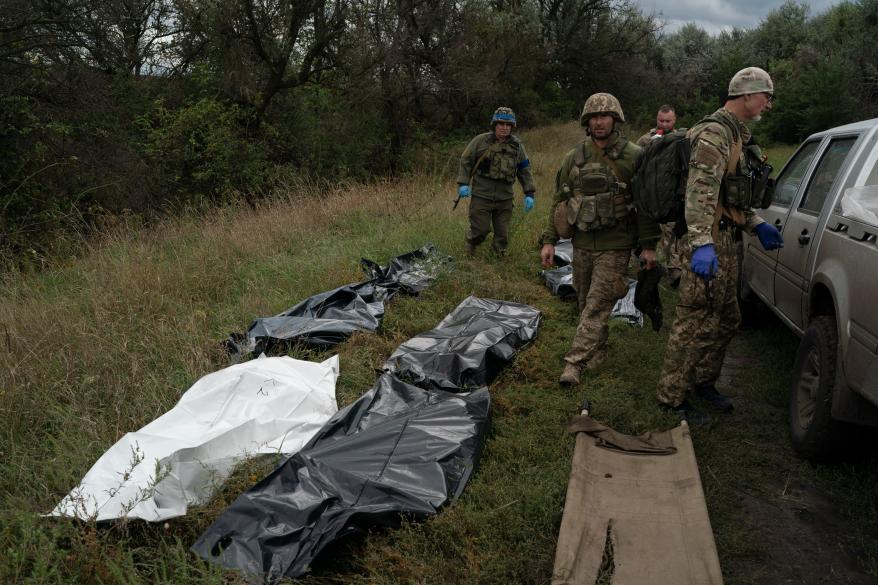Ukrainian soldier mom Andriana Arekhta opens up about life on the frontlines
She’s a young mom with a master’s degree in public policy but spends her days and nights fighting on the frontlines in Ukraine with “stingers and switchblades.”
Andriana Arekhta, 34, was in New York Tuesday and away from the battlefields but still haunted by the visions — and smells — of the carnage in her war-torn country.
The worst, she said, is discovering corpses of children and teens who have been tortured by Russians.
“Even when I am in the forests, in the fresh air, I can still smell the stench of burned houses and fresh corpses,” she said.
Some of the stories that stick with her include an 11-year old boy who was whipped by a large group of Russian soldiers in front of his mother — he survived but never spoke again. She also said she saw a field filled with more than 100 dead cows.
As Ukraine begins to liberate some of its occupied territory from Russian invaders — who leave behind a trail of mass graves and war crimes — Arekhta, a combat soldier, left the frontlines for Washington, DC.
Arekhta is one of four female fighters currently speaking before places like the appropriations, armed forces and foreign relations committees on behalf of Ukraine’s army, in which one of every four fighters is a woman.
Her message is simple.
“We need metal. We pay for it with our lives,” said Arekhta, a special forces weapons sergeant in the Ukrainian armed forces and head of the Women Veteran Movement.
She also wants to thank the US for the weapons the country has already sent.
“Your weapons are saving lives,” she said.
But, she continues — as Putin threatens to start drafting his citizens — this isn’t just about an unprovoked war of aggression between Russia and Ukraine.
“This is a battle for democracy itself. If we fall, Europe is next,” said Arekhta.
What do they need? More “HIMARSes, ammunition, armored vehicles, tanks, fighter jets and ground air defense.”
Arekhta was just 2-years old when the Soviet Union collapsed, but she had heard stories about the perils of Soviet imperialism — her own grandmother had been sent to Siberia during the Communist era, she says.
Arekhta, whose steady blue eyes have seen too much, had completed her master’s and signed a contract to work in Japan when Russia invaded Crimea in 2014.
She worked as an activist and then joined her first combat battalion in May 2014. Like many of her fellow soldiers — she didn’t tell her parents. Then a New York Times photographer took her picture.
“I wore a balaclava that covered my face. All you could see were my eyes, but my mother knew it was me,” she said.
Arekhta met her husband, Max, on the frontlines.
“It was love at first sight,” she said, adding that she only stopped fighting in 2015, when she was five months pregnant with their son, Makar.
For the next seven years, she worked as head of the Ukrainian veterans’ women’s movement, as a United Nations advisor for veterans’ affairs and as a “military wife.”
Back then, women weren’t officially allowed to be part of a combat unit, so her documents listed her as a combat “seamstress.”
But when Russia invaded Ukraine last February, Arekhta was back on the frontlines, fighting with her husband. One of their best friends, a “brother in arms” and godfather to Makar, was killed.
“Now that I’m a mother, it’s harder to be on the frontline. Before it was easier to fight. Now I’m responsible for my baby,” she said.
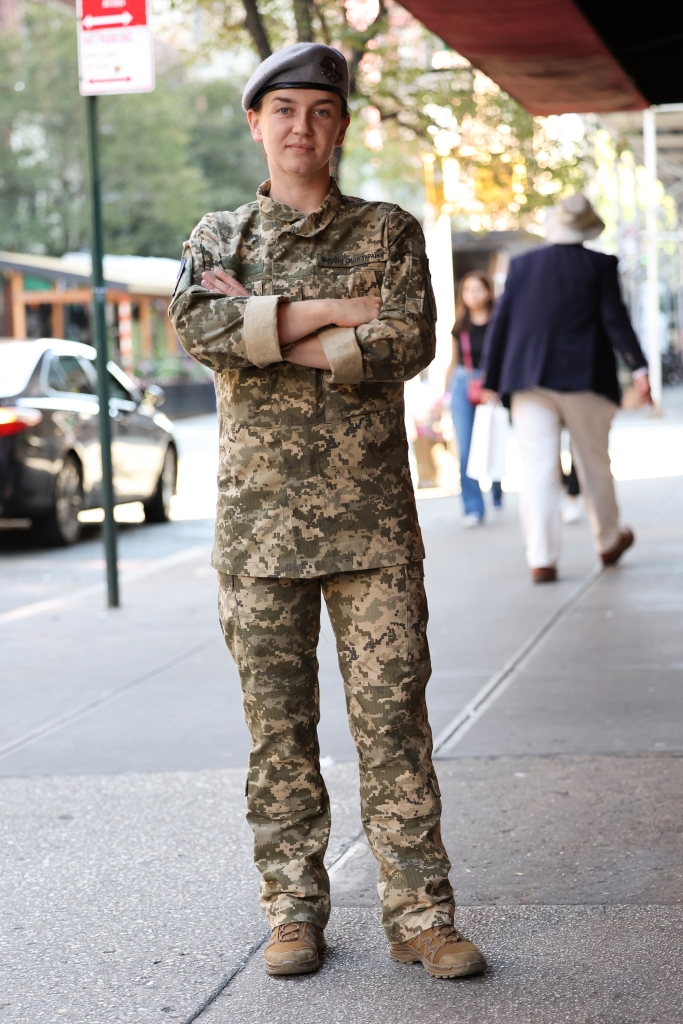
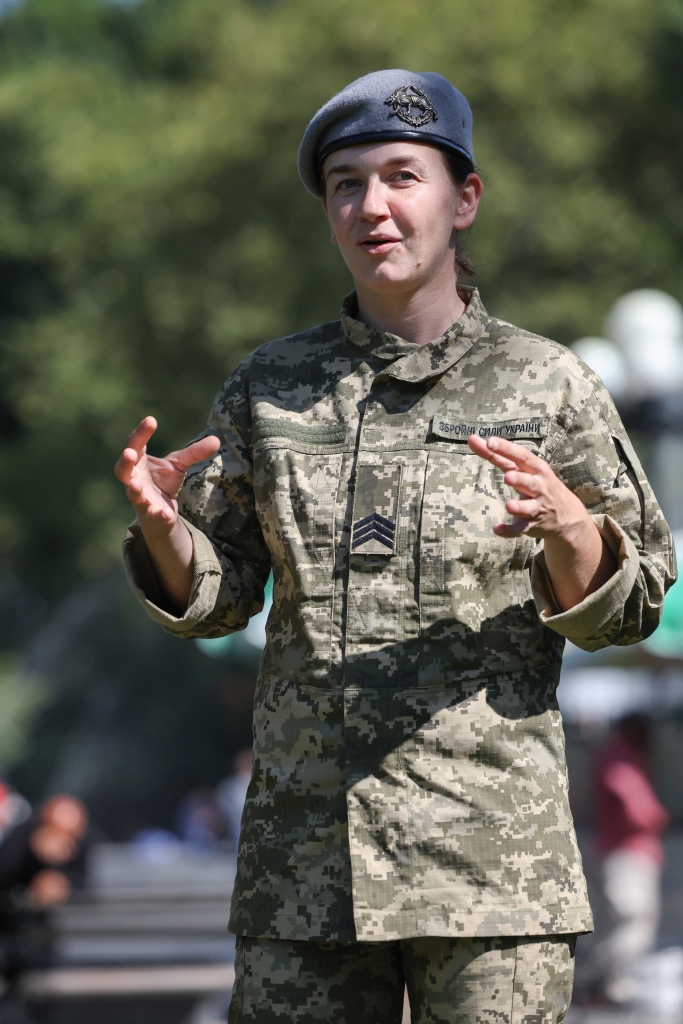
But now that she is a mother, she also has more to fight for.
When Arekhta started fighting in 2014, she wore sneakers — there were so few female fighters that they didn’t have boots or uniforms. That’s changed. Earlier this year, for Valentine’s Day — just before Russia’s unprovoked full scale invasion — Arekhta’s husband gave her ammunition, which came in handy.
But they still need more, as well as armored cars.
“We call it the Toyota and Mitsubishi war. We need Hummers, or any kind of armored vehicles. They save lives,” she said.
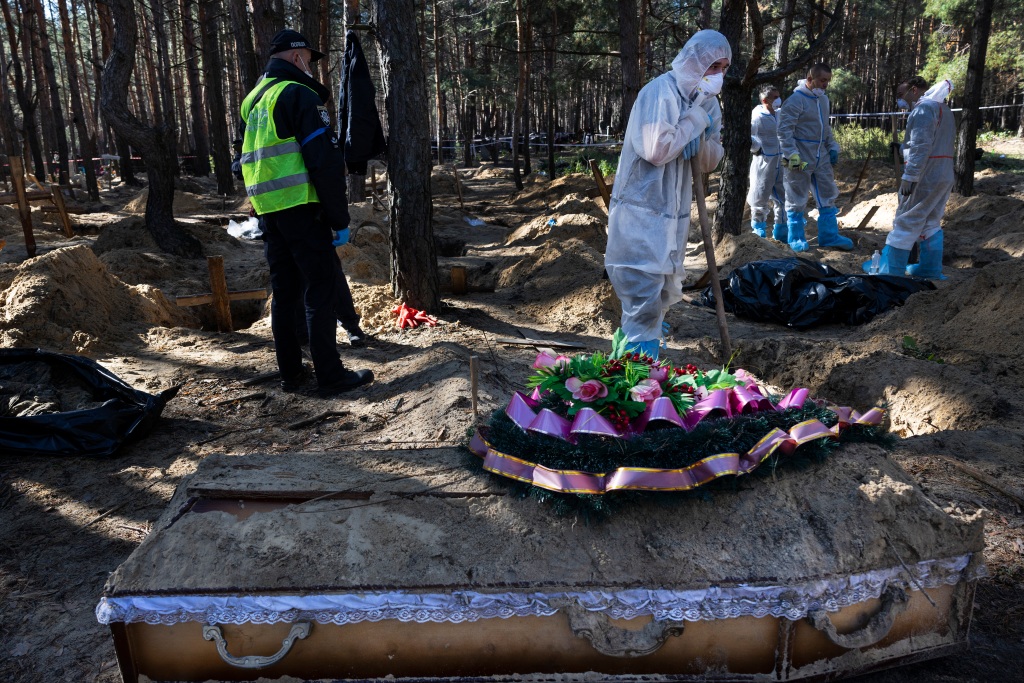
Arekhta carries a photo of her adorable son with her on her phone, and she calls him every day — when she can. He is with her parents in western Ukraine and knowing that he is safe is part of what fuels her fighting spirit.
“I am fighting for him, and he is doing his part, baking cookies for the soldiers,” she said with a smile.
Despite the hardship and witnessing unbearable crimes, Arekhta’s son brings a certain sweetness to the war.
“Makar asked for an ant farm for his birthday. But we were in Kiev and there was a blockade,” Arekhta said. “We made an ant farm but couldn’t get it to him, so we sent photos and videos.”
The whole battalion was involved as Makar counted the number of ants from afar.
As we walked towards Washington Square Park, a young Ukrainian approached. He told Arekhta, in Ukrainian, that he is raising money and sending supplies to Ukraine. Then he thanked her for her service.
Clearly, gender equality still has a long way to go — in the US and Ukraine.
Nevertheless, she said, “the war has changed everything.”
“As a woman, you need to work harder, but we are equal with our brothers in arms,” she said, adding that Ukraine will win — and rebuild itself from the ashes, for their children.
But, she said, winter is coming, and even without Russian bombs, Ukrainians without electricity will die from cold and starvation.
“Please send more weapons. They will help us end the war faster before we lose even more young men and women,” she said.
Read the full article Here


